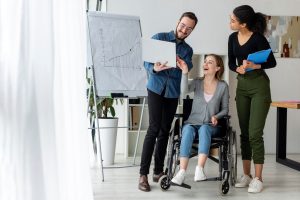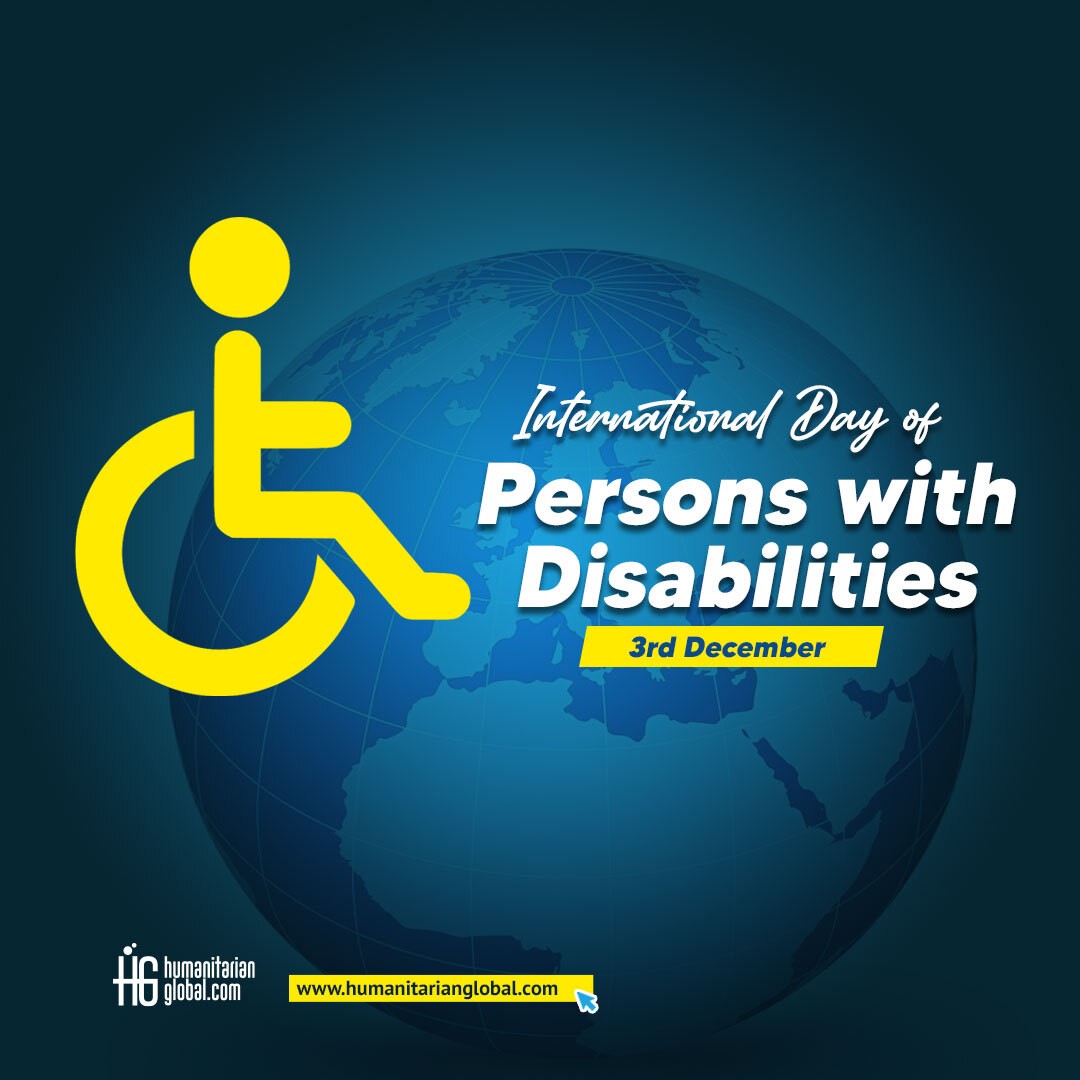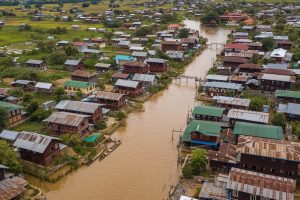As the COVID-19 pandemic, conflict, and climate change continue to increase rapidly around the world, building cohesive, inclusive, and resilient communities will be the basis of sustainable development gains. However, persons with disabilities are too often left out of conversations on these critical issues, despite being among the most affected groups. Due to overlapping crises, persons with disabilities are at a high risk of falling further into poverty and being further left behind.
The International Day of Persons with Disabilities is observed every year on 3rd December to promote the rights and well-being of people with disabilities in all respects. It was established in 1992 by the United Nations General Assembly resolution 47/3. This international day increases awareness of the issues faced by people with disabilities worldwide and champions for their rights. It has two key goals,
- To promote the full and equal participation of persons with disabilities.
- To ensure that persons with disabilities are included in all aspects of society and development.
The Theme of IDPWD 2021
The 2021 theme for International Day of Persons with Disabilities (IDPWD) is ‘Fighting for rights in the post-COVID era.” This year, the aim of the day is to celebrate the barriers, challenges, and opportunities for people with disabilities, during a global pandemic. Since March last year, everyone around the world has been directly or indirectly affected by harsh social, political, and economic change due to local and global responses to the COVID-19 pandemic. This year, local and global public health officials, advocates, supporters, political representatives, and everyone in every community should learn from what people with disabilities have gone through during this pandemic. We should all advocate for more relevant investments into the socioeconomic building blocks which will mitigate the barriers experienced by people with disabilities everywhere on earth.
The Observance of IDPWD 2021
On 3rd December this year, during the yearly commemoration of people with disabilities, we acknowledge that people living with disabilities are among the populations that have been most affected amid the COVID pandemic. For many people, marginalization, vulnerability, discrimination, and exploitation are challenges they face on a daily. However, for disabled people, the increased risk of poor outcomes has been heightened by more severe social isolation, low access to rehabilitation services and routine health care, poorly constructed mental health services, poorly tailored public health messaging, and a lack of emergency preparedness for special needs people.
To participate in this year’s commemoration of International Day for Persons with Disabilities, you can start by learning how to be good teammates for people living with disabilities. Here is a breakdown of some of those ways;
1. Language
Since words have the power to heal or hurt, language is a significant starting point for being a great colleague when it comes to inclusiveness and accessibility. They can either lift one up or put them down.
2. Make friends first
For many people living with disabilities, their disabilities don’t define their lives. For those who are defined by their disabilities, asking about and listening to them talk about their life without questioning the choices they have made or offering unsolicited sympathy or advice is the way to go. When trying to connect with them, look for some pieces of shared humanity.

3. Train everyone
In workplaces, managers and teammates should learn about the rights of people with disabilities, including invisible disabilities, and everyone’s role in improving workplace accessibility. Being responsive at the workplace is more ethical compared to only generalizing from outsider perspectives.
4. Eliminate physical barriers
Take time to ensure that people with disabilities are able to navigate in every space easily without barriers, by making accommodations such as ramps and more accessible doorways, fragrances and other indoor air quality factors, adjustable light levels, and managing the audio environment. This can improve the health of employees across many categories of disability, including those with undiagnosed allergies or mental health, sensory or neurological processing disorders.
5. Maintain flexibility
No matter how accessible a workplace is, it might not be enough for people who have extreme mobility impairments. People with such impairments should be invited to help in designing accommodations that work for everyone.
6. Enhance digital accessibility
People who process information differently feel less excluded when certain provisions are made such as closed-captioned video calls, use of large enough fonts, and email summaries of key points from meetings. They should be encouraged to follow up through the communication mediums that work best for them.
This year, United Nations Educational, Scientific and Cultural Organization (UNESCO) is boosting the observance of IDPWD with a week-long program that runs from 25th November through 3rd December with a focus on “sustainable post-COVID-19 world by and for persons with disabilities.“ To amplify the campaign’s visibility, UNESCO is highlighting the stories of people who live with disabilities through the coronavirus pandemic on its social media platforms. On this special international day, let’s all keep in mind that disability is not inability. Happy International Day for People Living With Disabilities!







